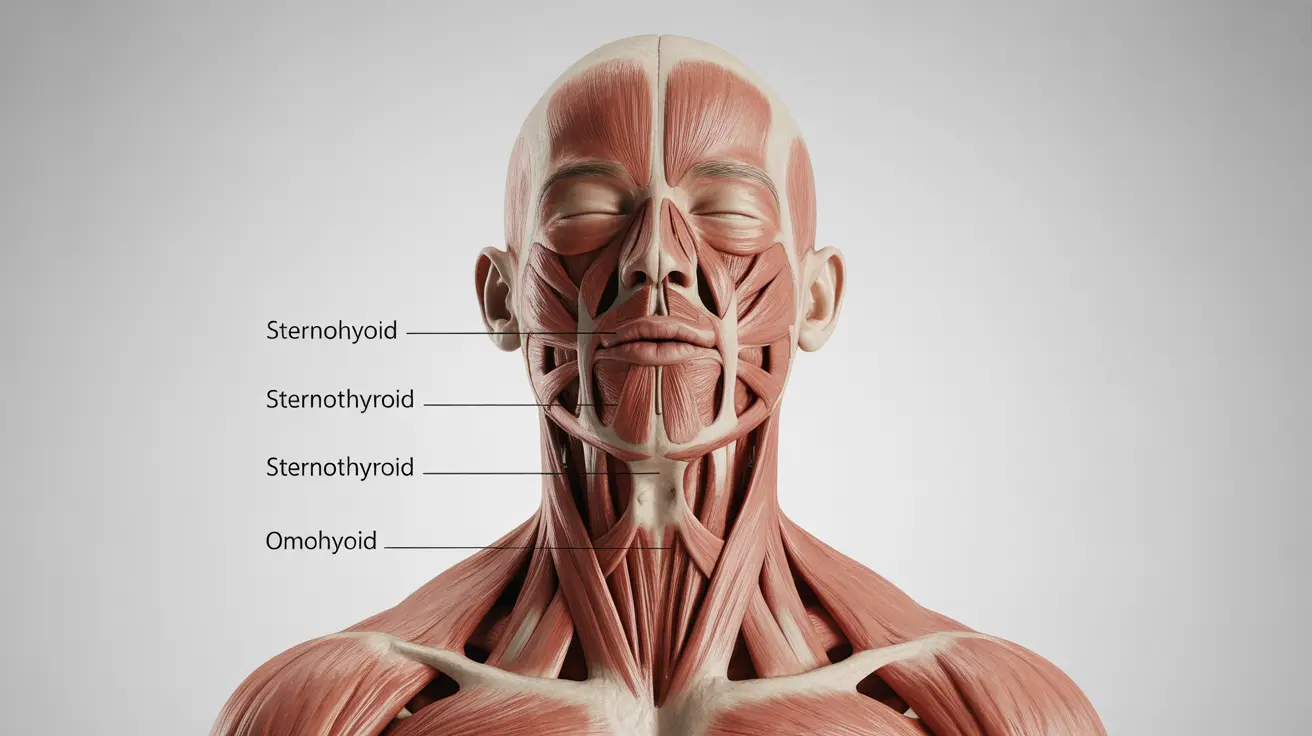Experiencing tense throat muscles can be both uncomfortable and concerning. This common condition can manifest as a sensation of tightness, constriction, or the feeling of having something stuck in your throat. Understanding the various causes and available treatments can help you manage this condition effectively and know when to seek medical attention.
Common Causes of Throat Muscle Tension
Throat muscle tension can arise from multiple factors, ranging from psychological to physical conditions:
Stress and Anxiety
Mental health plays a significant role in throat tension. Anxiety can trigger the body's fight-or-flight response, leading to muscle tension throughout the body, including the throat. This reaction can create a sensation of tightness or a "lump in the throat" feeling, medically known as globus sensation.
Acid Reflux and GERD
Gastroesophageal reflux disease (GERD) can cause persistent throat tension as stomach acid irritates the esophagus and throat tissues. This irritation often leads to muscle tension as a protective response.
Muscle Tension Dysphonia
This voice disorder occurs when the muscles around the larynx become excessively tense during speech, affecting vocal quality and causing throat discomfort.
Managing Throat Tension Through Lifestyle Changes
Several lifestyle modifications can help alleviate tense throat muscles:
- Practice proper breathing techniques
- Maintain good posture
- Stay hydrated throughout the day
- Avoid caffeine and alcohol
- Practice stress-reduction techniques
Medical Treatments and Professional Help
When self-management isn't sufficient, various medical interventions may be recommended:
Voice Therapy
Working with a speech-language pathologist can help address muscle tension dysphonia and improve vocal techniques to reduce throat strain.
Medication
Depending on the underlying cause, healthcare providers might prescribe:
- Acid reflux medications
- Anti-anxiety medications
- Muscle relaxants
Physical Therapy
Specialized exercises and manual therapy techniques can help relax tense throat muscles and improve overall neck mobility.
When to Seek Emergency Care
Some symptoms warrant immediate medical attention:
- Sudden severe throat tightness
- Difficulty breathing
- Severe allergic reactions
- Inability to swallow
- Persistent pain
Frequently Asked Questions
What are the common causes of tense throat muscles and throat tightness?
Common causes include anxiety, stress, GERD, muscle tension dysphonia, allergies, and poor posture. Physical and emotional stress can contribute significantly to throat muscle tension.
How can anxiety lead to tightness or tension in the throat, and what are effective ways to relieve it?
Anxiety triggers the body's stress response, causing muscle tension including in the throat. Relief can be found through deep breathing exercises, meditation, progressive muscle relaxation, and professional counseling when needed.
What treatments are available for throat tightness caused by GERD or acid reflux?
Treatments include lifestyle changes (avoiding trigger foods, eating smaller meals), over-the-counter antacids, prescription medications like proton pump inhibitors, and in some cases, surgical intervention.
When should I seek medical attention for sudden throat tightness or difficulty breathing due to allergies?
Seek immediate medical care if you experience sudden severe throat tightness, difficulty breathing, symptoms of anaphylaxis, or if throat tightness is accompanied by swelling or severe pain.
How is muscle tension dysphonia diagnosed and treated to reduce throat muscle tightness during speech?
Diagnosis typically involves evaluation by an ENT doctor or speech-language pathologist. Treatment includes voice therapy, relaxation techniques, and exercises to improve vocal technique and reduce muscle tension.




